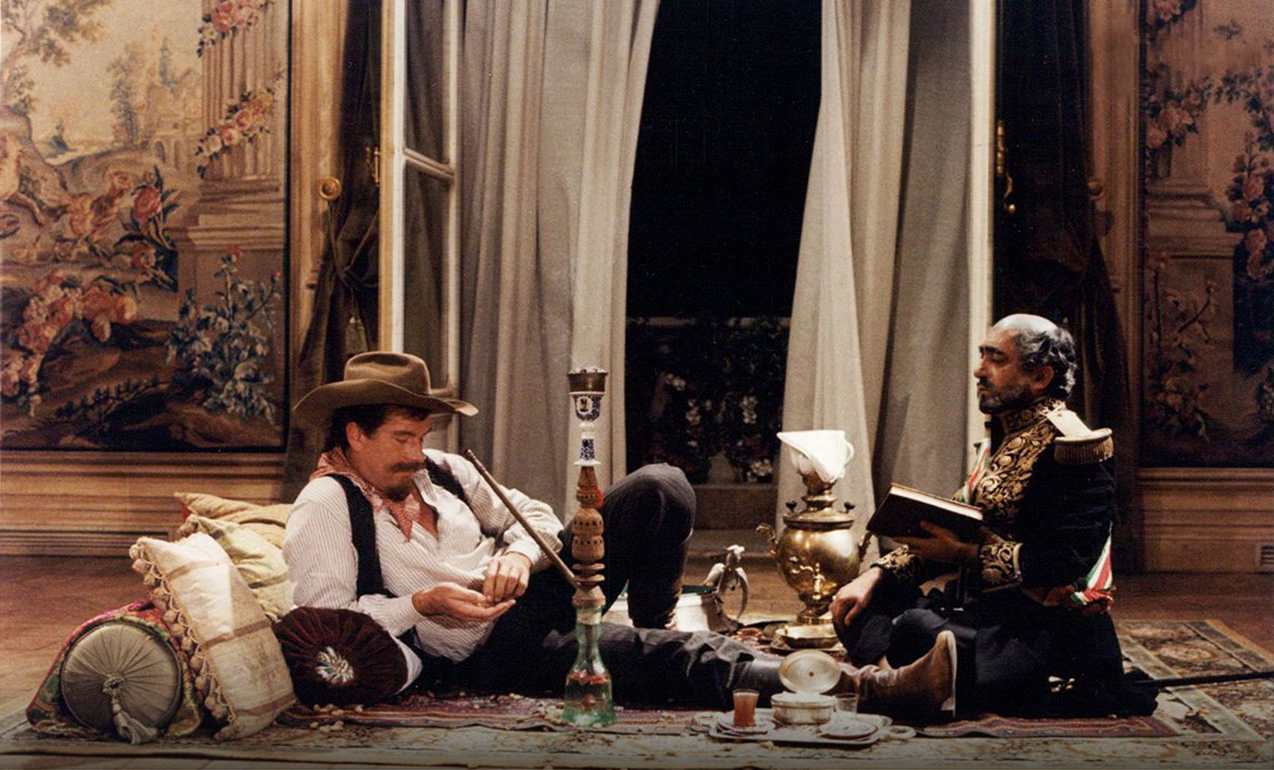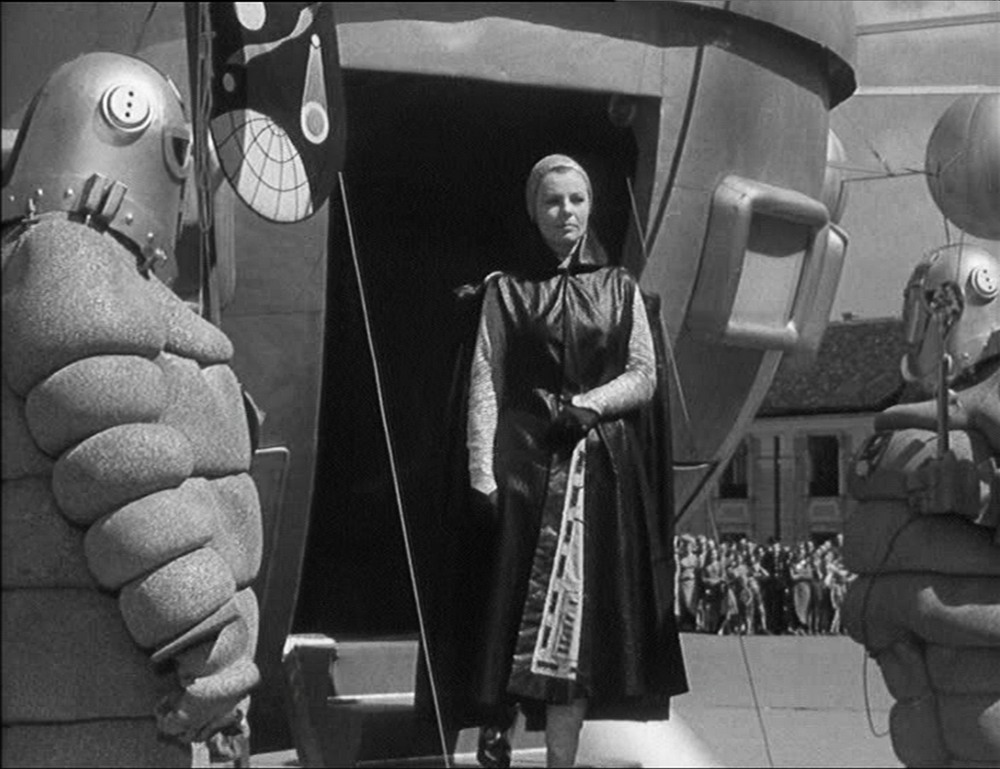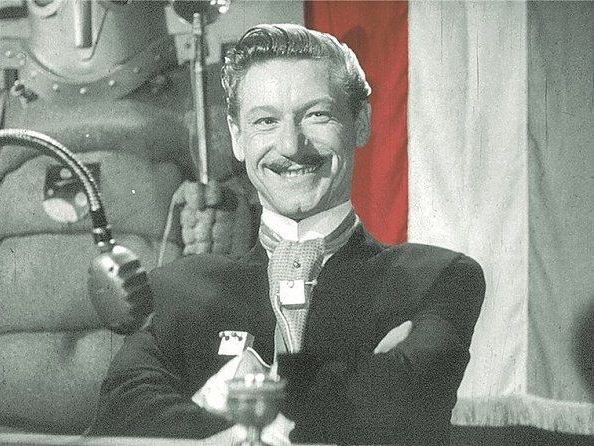حاجی واشنگتن [Hajji Washington / Haji Washington] (Ali Hatami, 1983)
Apr
30
George Washington – 1789

The ambassador and guest in the embassy. The guest, a white cowboy peeling peanuts, leisurely rests on a Persian rug with a hookah by his side. The ambassador recites from a book, with his chaii within reach (via). DP: Mehrdad Fakhimi.
The White House, or set in Washington, DC, in commemoration of the first inauguration of George Washington in 1789.
Hajji Hossein-Gholi Noori was Iran's first ambassador to the United States in 1889. Stuck in DC, homesick, and without any US-based Iranians to serve, he slowly unravels
politics
Bom Povo Português [The Good People of Portugal] (Rui Simões, 1980)
Apr
25
1974

A young soldier triumphantly holds up his riffle. DPs: Manuel Barros, Mário Cabrita Gil, José Luís Carvalhosa, Gérard Collet, Acácio de Almeida, Russell Parker & José Reynès.
Takes places between April 25th, 1974 and November 25th, 1975, during the Revolução dos Cravos.
1. April 2000 [April 1, 2000] (Wolfgang Liebeneiner, 1952)
Apr
1
2000

The President of the Global Union (Hilde Krahl) stepping out of her spaceship. DPs: Sepp Ketterer, Karl Löb & Fritz Arno Wagner.
“F-R-double-E-D, D-O-M spells Freedom! We fight for freedom, for one and for all! It's you-and-me-dom, and ten foot tall! Freedom, freedom, and oh-can-you-see-dom, we'll always beat 'em with star-spangled freedom!”Mr. Freedom (William Klein, 1968)
Mar
23
freebie: liberty

Mr. Freedom (John Abbey) in his American football outfit carries Marie-Madeleine (Delphine Seyrig) is his muscular manly arms. Tagline: OH! OHHH! MR. FREEDOM! YOU KILL ME. DP: Pierre Lhomme.
Freebie: “Give me liberty or give me death!” (Patrick Henry, March 23, 1775)
– Mr. Freedom singing his theme song
Waiting for Fidel (Michael Rubbo, 1974)
Mar
8
International Women's Day

A group of six girls and two boys sing in celebration of International Women's Day. DP: Douglas Kiefer.
Time flies while waiting for Fidel, and before you know it, it's March 8.
Film du Jour posts does not list holidays on their respective date, unless a film or scene happens to take place on one.
1. April 2000 [April 1, 2000] (Wolfgang Liebeneiner, 1952)
Jan
20
Inauguration Day

Austria's new Prime Minister (Josef Meinrad). DPs: Sepp Ketterer, Karl Löb & Fritz Arno Wagner.
Inaugurations for Inauguration Day (USA).
In the future year 2000, on April 1, the newly-elected Prime Minister of Austria is inaugurated. Much to the shock of the Global Union, he declares Austria's independence!
“I came from a dream that the black man dreamed long ago. I’m actually a presence sent to you by your ancestors.”Space Is the Place (John Coney, 1974)
Jan
5
Space Shuttle

Ra's arrival. DP: Seth Hill.
A film about space travel on the day Nixon announced the Space Shuttle program in 1972.
– Sun Ra
“Let's be different. Let's not hate anyone.”The World's Greatest Sinner (Timothy Carey, 1962)
Mar
1
eggs

Clarence “God” Hilliard (Timothy Carey) sitting at a round dinner table talking to his wife who's leaning against a counter holding a carton of eggs and crockery. DPs: Frank Grande, Robert Shelfow, Ray Dennis Steckler & Edgar G. Ulmer.
– Clarence “God” Hilliard
Ucho [The Ear] (Karel Kachyňa, 1970)
Jan
8
cake

A gold-rimmed plate with a messy piece of cake on its side. Near it two glasses and a bottle of alcohol. DP: Josef Illík.
“The first section's dead. There's no one left. We lost contact with the second. The third is reorganizing. All that's left is the fourth. It's enough to start over with.”La battaglia di Algeri [The Battle of Algiers] (Gillo Pontecorvo, 1966)
Dec
18
Arabic Language Day

Petit Omar (Mohamed Ben Kassen) reading out a letter to Ali La Pointe (Brahim Hadjadj) in the قصبة, (Cashbah). If it were not for the leads' jeans and sneakers, this scene could be in any century. DP: Marcello Gatti.
Speak an Arabic language on UN Arabic Language Day